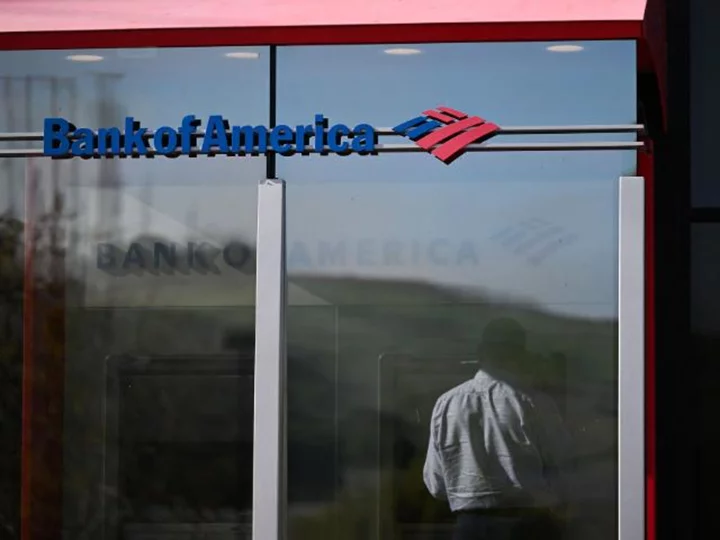Federal regulators said Tuesday they found that Bank of America harmed customers by double-dipping on fees, withholding credit card rewards and opening fake accounts, all of which are violations of various consumer financial protection laws.
As a result, the Consumer Financial Protection Bureau ordered Bank of America to pay more than $100 million to customers and $90 million in penalties. The Office of the Comptroller of the Currency also ordered Bank of America to pay $60 million in fines.
The bank is the second largest in the United States, serving 68 million individuals and small businesses.
Some of the charges are reminiscent of the Wells Fargo scandal last decade that involved opening millions of bank accounts without customer authorization.
"Bank of America wrongfully withheld credit card rewards, double-dipped on fees, and opened accounts without consent," CFPB Director Rohit Chopra said in a statement. "These practices are illegal and undermine customer trust. The CFPB will be putting an end to these practices across the banking system."
The stated violations
The CFPB said that Bank of America "harmed hundreds of thousands of consumers over a period of several years and across multiple product lines and services."
Among them, the CFPB and OCC found that the bank, which normally charged customers $35 if their transaction was declined due to insufficient funds, allowed those fees to be "repeatedly charged" for the same transaction, resulting in customers being charged "tens of millions of dollars in fees on resubmitted transactions," according to the OCC.
That would happen after a first transaction was declined if a third-party merchant resubmitted the charge to the customer's account, which may still have had insufficient funds to cover that expense. At that point the customer would again be hit with either a $35 insufficient funds fee or $35 overdraft fee.
"The bank's disclosures did not clearly explain that multiple fees could result from the same transaction. Additionally, customers had no ability to know when or if a merchant would resubmit a transaction to the bank for payment and therefore could not reasonably avoid the assessment of multiple fees for the same transaction," the OCC said in its statement.
Bank of America noted in an email to CNN that those fees were eliminated last year. "We voluntarily reduced overdraft fees and eliminated all non-sufficient fund fees in the first half of 2022. As a result of these industry-leading changes, revenue from these fees has dropped more than 90 percent," a spokesman said.
The CFPB also said the bank would make special offers of cash and points when signing up new credit card customers, but that it illegally withheld those promised bonuses to tens of thousands of customers.
And from at least 2012, the agency said, in order to reach now defunct sales-based incentive goals and boost their evaluations, bank employees "illegally applied for and enrolled consumers in credit card accounts without consumers' knowledge or authorization." That involved using or obtaining consumers' credit reports without their consent and it resulted in customers being charged unjustified fees, taking hits to their credit reports and having to make efforts to correct the errors the bank made.
The fines Bank of America must pay
As a result of the violations regulators announced Tuesday, Bank of America will be on the hook to pay the agencies and the customers who were harmed over $250 million in total.
But this is not the first time the bank has been hit with regulatory fines. And those reported Tuesday are smaller than earlier ones. In 2014, it was ordered by the CFPB to pay $727 million in redress to consumers for illegal credit card practices. Last year it was ordered to pay a $10 million civil penalty pertaining to unlawful garnishments and it was further ordered to pay $225 million to consumers for "botched disbursement of state unemployment benefits at the height of the COVID-19 pandemic."

